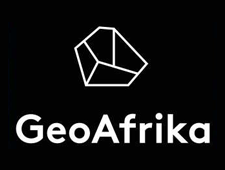SANRAL: Reliable Road Network Transforms Lives and Livelihoods
For SANRAL South Africa’s roads are its economic lifeblood - the ‘arteries’ of the country’s prosperity - and it is for the benefit of all its people that SANRAL is charged with delivering a safe, efficient, reliable and resilient national road transport system. “Ensuring our national road transport system delivers a better South Africa for all,” the agency asserts of its central vision.
South Africa’s national road network creates benefits impacting a litany of spheres, including economic growth, tourism, social development and the creation of opportunities. Established in 1998 to align with staunch government commitments to transform the public sector, SANRAL harnesses a combined professional experience of more than 600 years, an accrual of core skills and experience in road development and management within a motivated and passionate team.
SANRAL’s Tshwane head office is supplemented by four regional offices, a second in Tshwane and the remainder located in Cape Town, Pietermaritzburg and Gqeberha. SANRAL’s mandate is clear and well-defined: to finance, improve, manage and maintain South Africa’s vast, and expanding national road network.
This is a system which currently stands at in excess of 22,00 kilometres – 22,207 kilometres according to SANRAL’s precise estimation. With an estimated value of R400 billion, it is considered one of South Africa’s largest infrastructural assets. “Our vision is to be a world leader in the provision of a superior national road network,” sets forth the agency.
“As the custodian of the national road network, we are committed to the creation of economic value for the nation, through the provision of road infrastructure with a motivated and professional team, consideration for community needs and state-of-the-art technology.”
INFRASTRUCTURE DELIVERED
Since the advent of democracy in South Africa, government has sought to realign its public expenditure, as well as the financing of public services, to redress past imbalances. “Recognising the enormity of many demands on the fiscus and the advantage of constructive engagement with the private sector, SANRAL has proactively sought alternative sources of finance for road infrastructure and opportunities to reduce dependence on tax-based revenues.”
SANRAL has two primary sources of income: non-toll roads funded from allocations made by the National Treasury, and toll road operations, which can be divided into two columns – those managed and funded by SANRAL and those wholly funded by private companies. Tolling represents a fair and equitable method as it enables motorists to be obliged only to pay for the specific section of road used; as such, it is often referred to as the ‘user‐pay’ model.
“SANRAL’s tolling approach is one of the most advanced systems in the world,” it adds, “which enables the individual design of each road section based on the needs for that particular section of the road. Tolls link the benefits for the road user with its fees by charging users only in direct relationship to how much of the road they use.”
Tolling’s importance is difficult to overstate, as it allows SANRAL to provide crucial roads much sooner than if reliant on the traditional tax‐based revenue funding. It assures the delivery of much-needed infrastructure in expedited fashion, and ensures that dedicated funds for maintenance is available to maintain a road network of world-famous quality, while augmenting road safety.
South Africa has the highest cars per capita in Africa, with one in every five people in owning a vehicle. With total vehicle sales in South Africa rising 19.5% year-on-year to reach 41,382 units in January of 2022, and well in excess of 10 million registered vehicles across the country, SANRAL’s task becomes all the more challenging and vital, as it neatly summates.
“The South African national road network, managed by SANRAL, forms the arteries of the nation that connect major cities, town and developing villages in rural areas of the country. As a leading role player, job creator and innovator in the sector, SANRAL is aware of the crucial role that mobility plays in our society.
“We are committed to delivering a safe, affordable, accessible and reliable road transport network which connects our cities, towns and rural areas, and connects people to jobs and services, supporting economic growth. By linking producers to markets, workers to jobs, students to schools and the sick to hospitals, roads are vital to any social development agenda in the region.”
IMPACT BEYOND ROADS
Reflecting its belief in roads’ critical role in South African progress and prosperity, SANRAL has instigated ongoing and significant investments in large-scale road infrastructure projects in the country. A number of these have targeted its all-important toll highways, such as in Knysna and the Wild Coast project in the Eastern Province, one of the most beautiful parts of the country.
“However, it is also one of the poorest, and would be well served by the development of a road system to encourage tourism and open up the region to economic opportunities,” SANRAL qualifies, as again the improvement of this infrastructure throws up an abundance of possibilities previously unthinkable.
The spirit of upgrade and uplift is again apparent in the two major road upgrades slated for Mpumalanga this year, at a combined estimated cost of more than R9 billion. The projects include the upgrading of the N2 between Ermelo in Mpumalanga and the border with KwaZulu-Natal, which according to SANRAL’s Operations Maintenance Manager in the Northern Region, Madoda Mthembu, will be worth more than R6 billion alone.
The second concerns the R40 between the Mpumalanga towns Hazyview and Bushbuckridge, which connects Mpumalanga’s capital, the city of Mbombela, with Phalaborwa in Limpopo. “It is also highly utilised by tourists to the Kruger National Park and the surrounding tourist attractions,” Mthembu added of its multiple key functions.
SANRAL also announced in February that it has been able, after no shortage of frustration and scuppered attempts, to award the contracts for the construction of the uncompleted intersections on the N14 between Olifantshoek and Kathu. “We are delighted to see this project finally entering the final stages of completion. The intersections are a major road safety concern, and we are happy that SANRAL is prioritising road safety in our community. The jobs and subcontracting opportunities are a welcome boost to our local economy,” opined Councillor Ophaketse Hantise, Gamagara Local Municipality Mayor.
SANRAL’s many and varied road construction and maintenance projects don’t benefit road users exclusively, they also improve lives and livelihoods within local communities and help transform the construction and engineering sectors in South Africa. “These projects have a positive impact across the board,” agrees CEO Skhumbuzo Macozoma, as SANRAL remains at the vanguard of a wholesale rebuilding in the wake of the pandemic.
“As the national road agency, we are confident about our trajectory and our role as a catalyst for economic recovery and growth in the country, and SANRAL is also playing its part in creating much-needed employment, especially for the millions of people who were previously excluded from our economy.”
“Providing all South Africans with access to safe, intelligently designed and well-maintained roads is at the heart of what we do at SANRAL,” Macozoma reiterates, “but we also deliver so much more to improve lives and livelihoods.”


